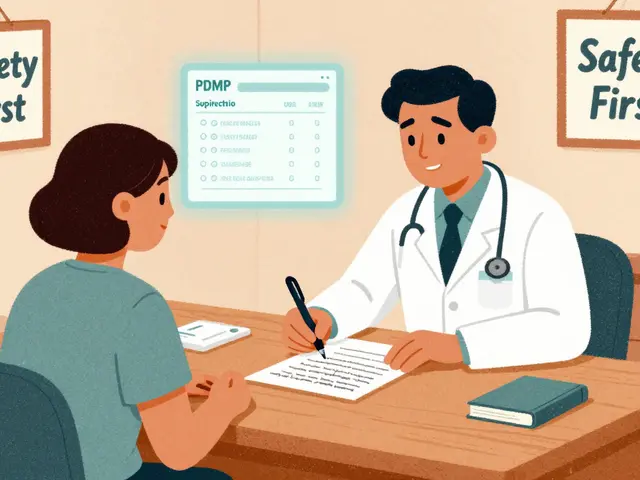Antidepressants Comparison: How to Choose the Right Medication
Not all antidepressants work the same. Some ease anxiety faster, some help with sleep, and others avoid sexual side effects. If you’re trying to pick or compare options, focus on how each drug affects symptoms, side effects, interactions, and your day-to-day life.
How they differ — the quick guide
Look at these main groups and what they usually do for people:
- SSRIs (sertraline, fluoxetine, citalopram): Common first choice. Good for depression and anxiety. Side effects often include nausea, sleep shifts, and sexual problems.
- SNRIs (venlafaxine, duloxetine): Work on both serotonin and norepinephrine. Often better for physical pain with depression but can raise blood pressure in some people.
- Bupropion (atypical): Helps energy and motivation, usually less sexual side effects, but can raise seizure risk in certain people.
- Mirtazapine: Good if you need appetite and sleep support; can cause weight gain and drowsiness.
- TCAs and MAOIs: Older drugs (amitriptyline, phenelzine). Effective but have more side effects and interactions — usually a second-line choice today.
Think about what symptoms bother you most. If anxiety or panic is key, an SSRI or SNRI may fit. If low energy and lack of motivation are the main issue, bupropion might help more.
Practical tips for comparing options
Start with these practical steps when weighing antidepressants:
- How fast does it work? Most need 4–6 weeks to show clear benefit. Sleep and appetite changes can appear earlier, mood improvement later.
- Side effect trade-offs: If sexual side effects matter, avoid some SSRIs; if sleep is a problem, consider mirtazapine or trazodone at night.
- Interactions: Check other meds and supplements. MAOIs and some combinations can be dangerous. Tell your doctor about all prescriptions, OTC drugs, and herbs.
- Special groups: Pregnancy, breastfeeding, older age, heart disease — these change which drugs are safer. Talk specifics with your prescriber.
- Switching and stopping: Don’t stop suddenly. Some drugs need slow tapering to avoid withdrawal. Your doctor can plan a safe switch if one drug isn’t working.
- Monitoring: Track mood, sleep, appetite, and side effects weekly. If nothing improves after 6–8 weeks, ask about switching or adjusting dose.
When you visit your provider, bring a short list: your main symptoms, past antidepressant trials and side effects, other meds, and what matters most to you (sleep, sex life, energy, etc.). That helps pick a medication that fits your life, not just your diagnosis.
If you want, use this tag page to find deeper comparisons, safety guides, and how-to articles on switching meds. Pick what matters, ask clear questions, and keep notes — small steps make treatment work better.










